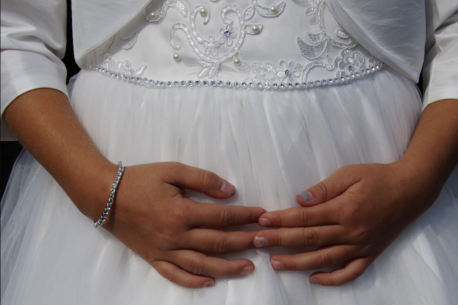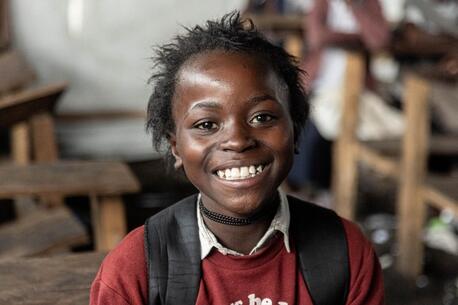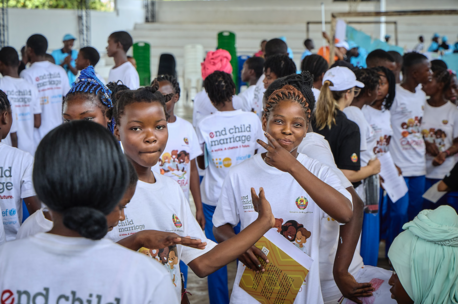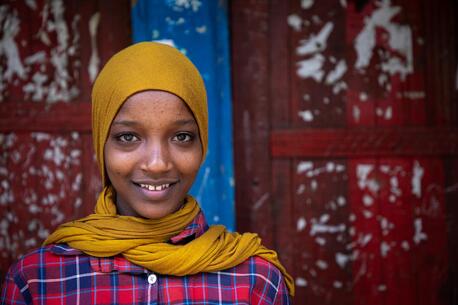
Fighting Child Marriage in Ethiopia
Child marriage robs girls of their childhood and threatens their well-being. After 13-year-old Zemzem was abducted in southern Ethiopia, quick-thinking members of a UNICEF-supported youth group mobilized to rescue her before she could be forced into an early marriage.
Thirteen-year-old Zemzem was on her way to the store in Derrera in the Sidama region of southern Ethiopia when she was abducted by three men. "I screamed all the way to the place where they took me," she said. "I'm so scared, just thinking about it."
The men hid her in an unfamiliar house. Their plan was to force her into an early marriage — in some rural parts of Ethiopia, girls are regularly pressured into child marriage.
Quick-thinking members of a UNICEF-supported youth group mobilized to find and rescue Zemzem a day later. "We heard that Zemzem was abducted, so we got together with her father and tracked down the perpetrators," said youth group member Mereke Hameso. "After we caught them, we handed them off to the authorities."
“I am young, and I don’t want to get married but, most importantly, I don't know anything about marriage," said Zemzem. "All I know now is that I want to learn, study and make my dad proud.”
I don't know anything about marriage. All I know now is that I want to learn, study and make my dad proud. — Zemzem, 13
Zemzem’s father, Jemal Kedir, recalls the terrifying night. “I kept thinking of the worst, but I had to remain positive and hopeful to get my daughter back,” he said. “If she hadn’t been found, she would have suffered from the physical and emotional pressure of early marriage.”
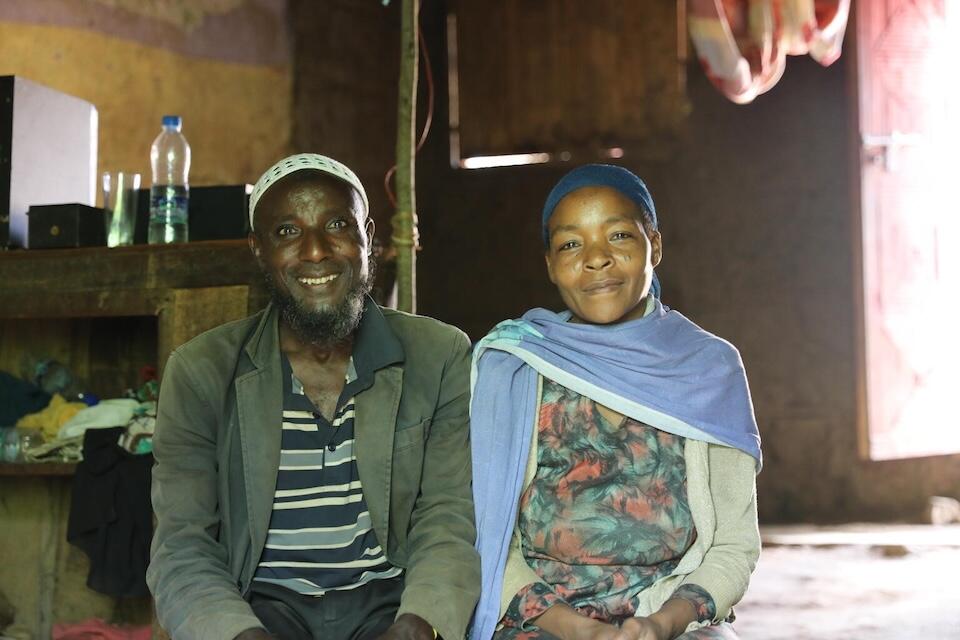
UNICEF youth groups are working to change community attitudes toward child marriage, FGM and other harmful practices
UNICEF supports youth groups to raise awareness on social issues including child marriage, female genital mutilation and other forms of violence against girls and women. The community in Derrera has made huge strides in preventing child marriage, once widely practiced.
“We used to have 15 to 20 child marriage cases within a span of seven months, but now the number has significantly reduced," said Abraham, a local social worker. "Previously, the fate of young girls was determined through negotiations between families, often resulting in early marriages. But that has changed."
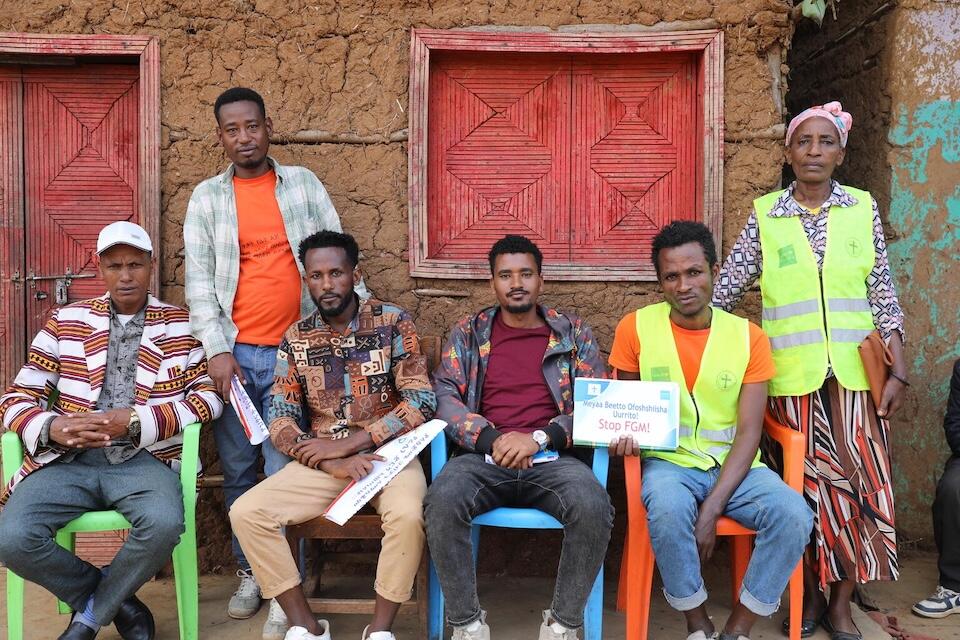
Every girl has the right to make decisions about her own future
Abraham and members of the youth group share information with their community about the harmful effects of child marriage and take measures against those who force the practice. “The community now understands and refuses to wed their daughters. They also know that abduction is not something you move on from with a simple apology or negotiation," he added.
Through the Spotlight Initiative Africa Regional Program, a global partnership between the United Nations and the European Union to eliminate all forms of violence against girls and women, UNICEF is shedding light on the consequences of child marriage. The program empowers communities and implements preventive measures to protect vulnerable girls against harmful practices in the district.
I don't have much to give my daughter, but I will carry all the burden to make sure that she gets an education. — Jemal Kadir, Zemzem's father
Now more than ever, Zemzem's father wants her to stay in school, learn and become a force of change for her community, just like the youth group members who rescued her. "I don’t have much to give to my daughter, but I will carry all the burden to make sure that she gets an education,” he said.
Hajitu Mohammed, Zemzem’s mother, shares her husband's concern and opposes the practice of child marriage. She believes that child marriage steals young girls’ futures, and wants her daughter to finish school before considering marriage. Though she is grateful for her life, she wants a much better life for her daughter.
“In the future, when she chooses to marry, I hope she finds a strong partner who will share the burdens that come with being a wife and a mother,” she said.
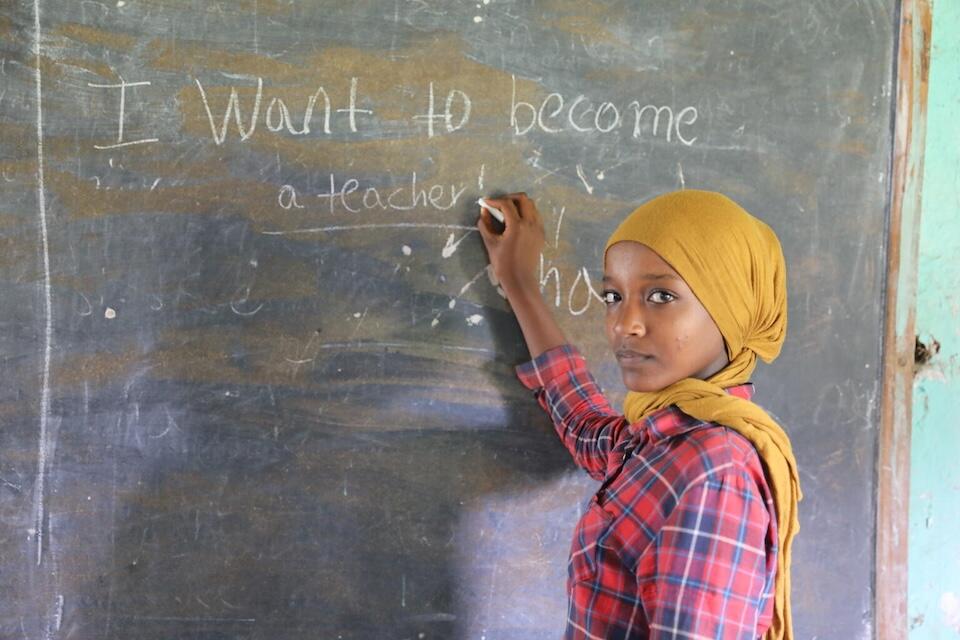
Zemzem's plan for the future is to complete her education and one day become a teacher herself. “I want to become a teacher because I love learning, especially math. I would teach children about math and child marriage. I would also share my experience, so they know they have a choice for their future.”
UNICEF works around the world to promote children's rights and protect their future. Your contribution can make a difference. Please donate.
This story was originally published on unicef.org
